Cam Newton could join elite group to win both Heisman Trophy, Super Bowl

On Sunday, Carolina Panthers quarterback Cam Newton will take on Peyton Manning and the Denver Broncos in Super Bowl 50.
In 2010, Newton joined the elite list of players who have won the Heisman Trophy after leading Auburn to the national championship and putting together a historically dominant college football season. Now Newton is one win from adding a Super Bowl ring to his collection.
Only 10 players have won both the Heisman Trophy and Super Bowl. Here’s a look at the players Newton could join if the Panthers come out on top.
• BEDARD: How the Panthers core was built
Paul Hornung
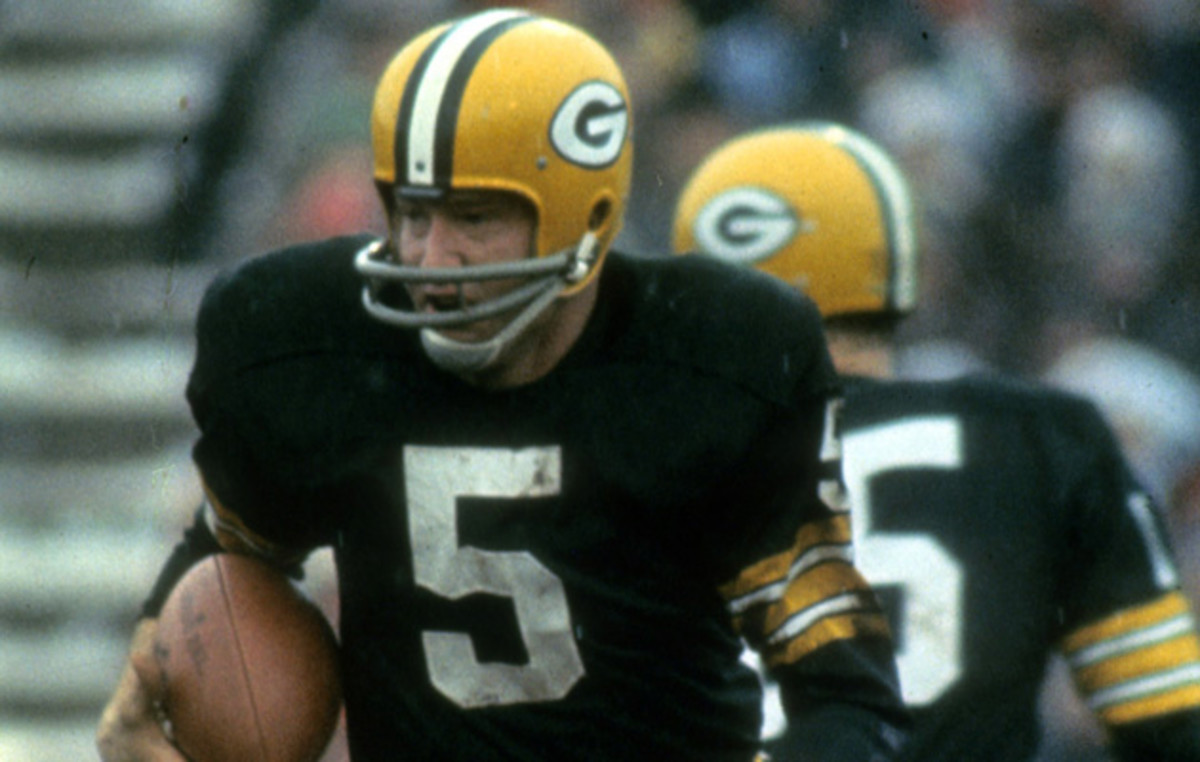
Hornung won the Heisman in 1956 as a senior at Notre Dame by doing a little bit of everything: Hornung threw for 917 yards and three touchdowns, rushed for 420 yards, returned kicks, kicked extra points, and even intercepted two passes on defense. The future Hall of Famer was part of the Green Bay Packers’ Super Bowl I championship team, but a pinched nerve in his neck prevented him from playing in the game.
Roger Staubach
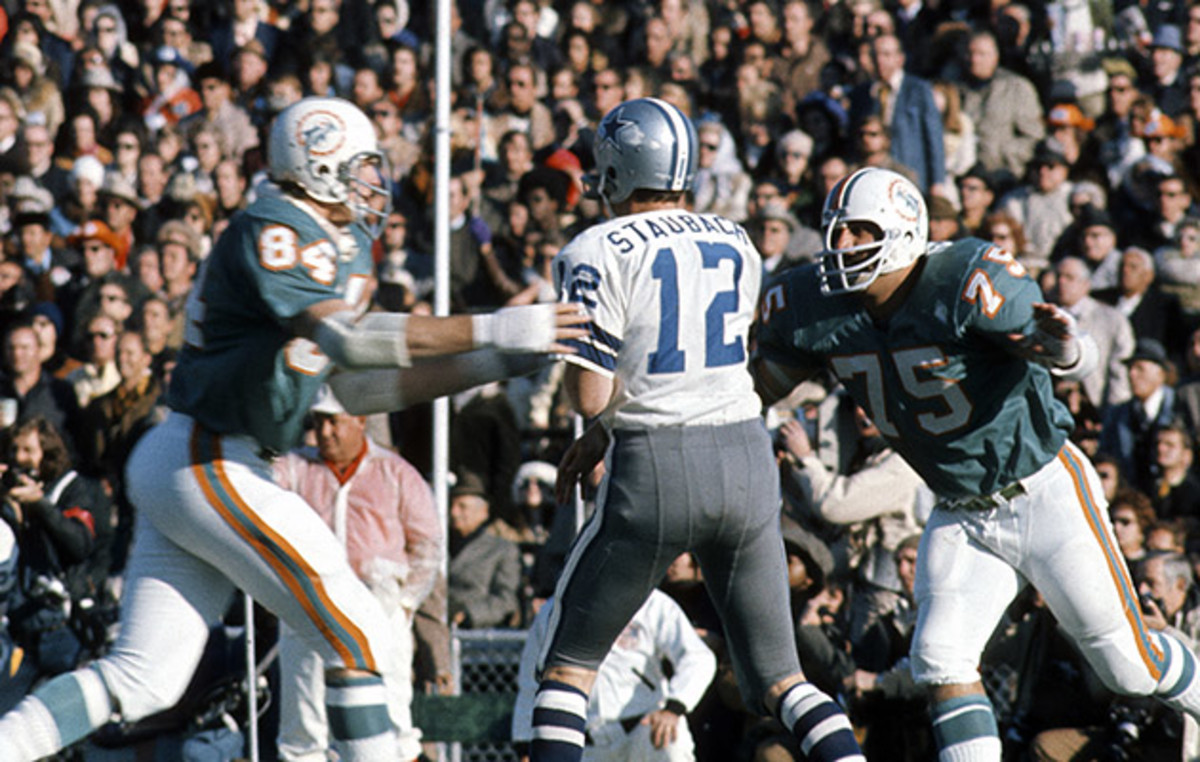
Staubach earned the Heisman as Navy’s quarterback in 1963. His first Super Bowl win came with the Dallas Cowboys in 1972. The Cowboys defeated Miami 24–3 and Staubach was named the game’s MVP after completing 12 of 19 passes for 119 yards and two touchdowns with no interceptions. Staubach, a future Hall of Famer also led Dallas to a win in Super Bowl XII.
Mike Garrett
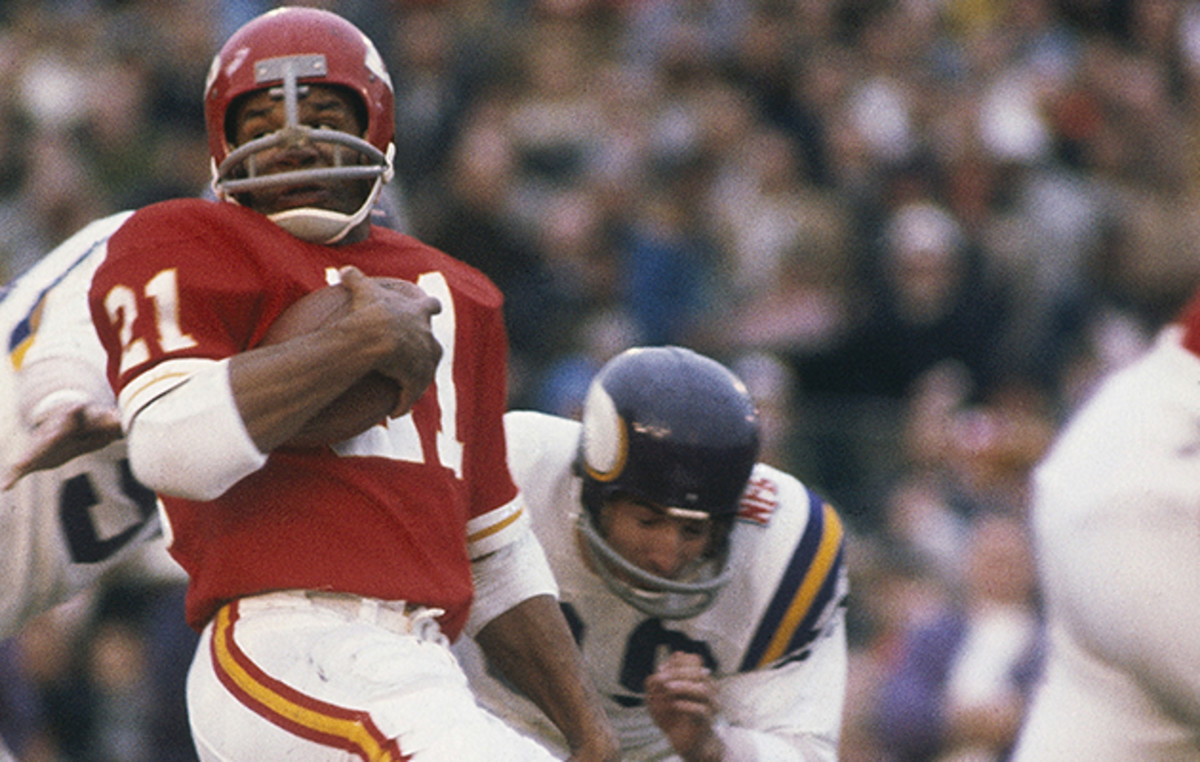
In 1965, Garrett won the Heisman Trophy at USC. The running back played in the first Super Bowl for the Kansas City Chiefs, who were defeated that year by the Packers. Garrett became the first Heisman winner to play in and win a Super Bowl in 1970 when the Chiefs defeated the Minnesota Vikings in Super Bowl IV.
Jim Plunkett
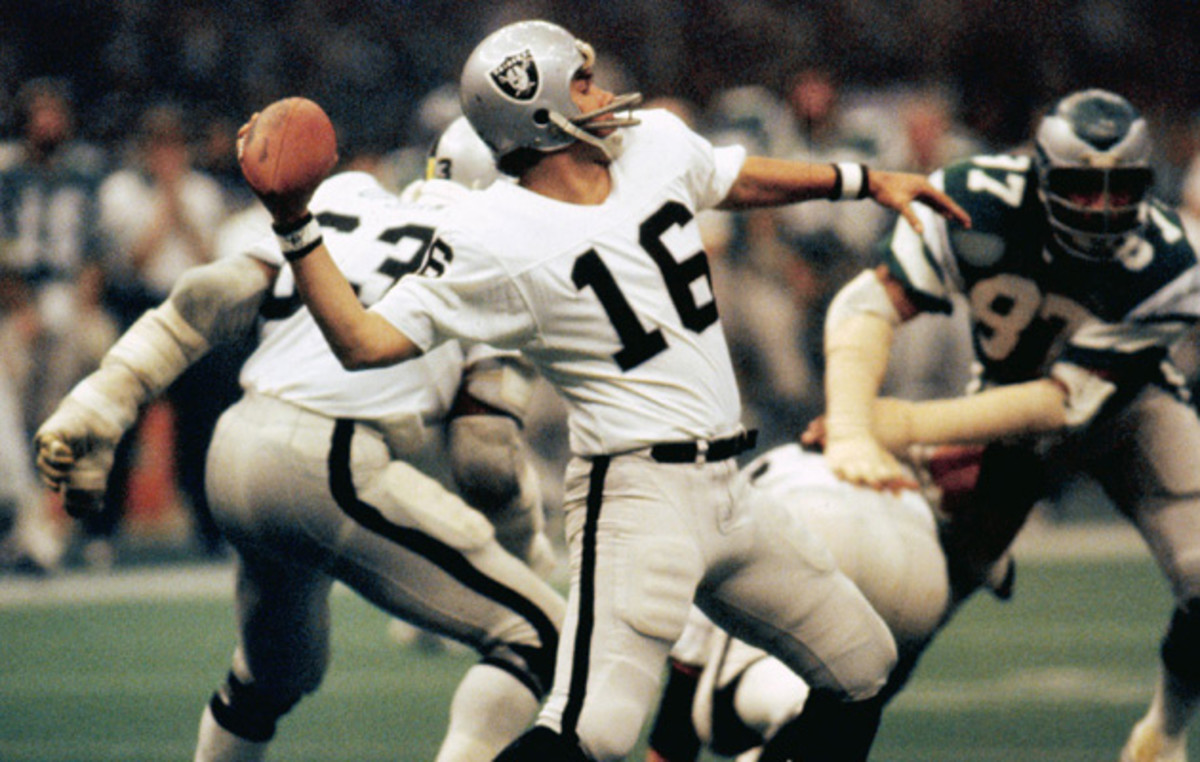
Plunkett won the Heisman at Stanford in 1970. The quarterback went on to lead the Oakland Raiders to a Super Bowl XV victory, and after throwing for 261 yards and three touchdowns, Plunkett became the second Heisman winner to be named Super Bowl MVP. He picked up another Super Bowl victory in 1984 with the Los Angeles Raiders.
Tony Dorsett
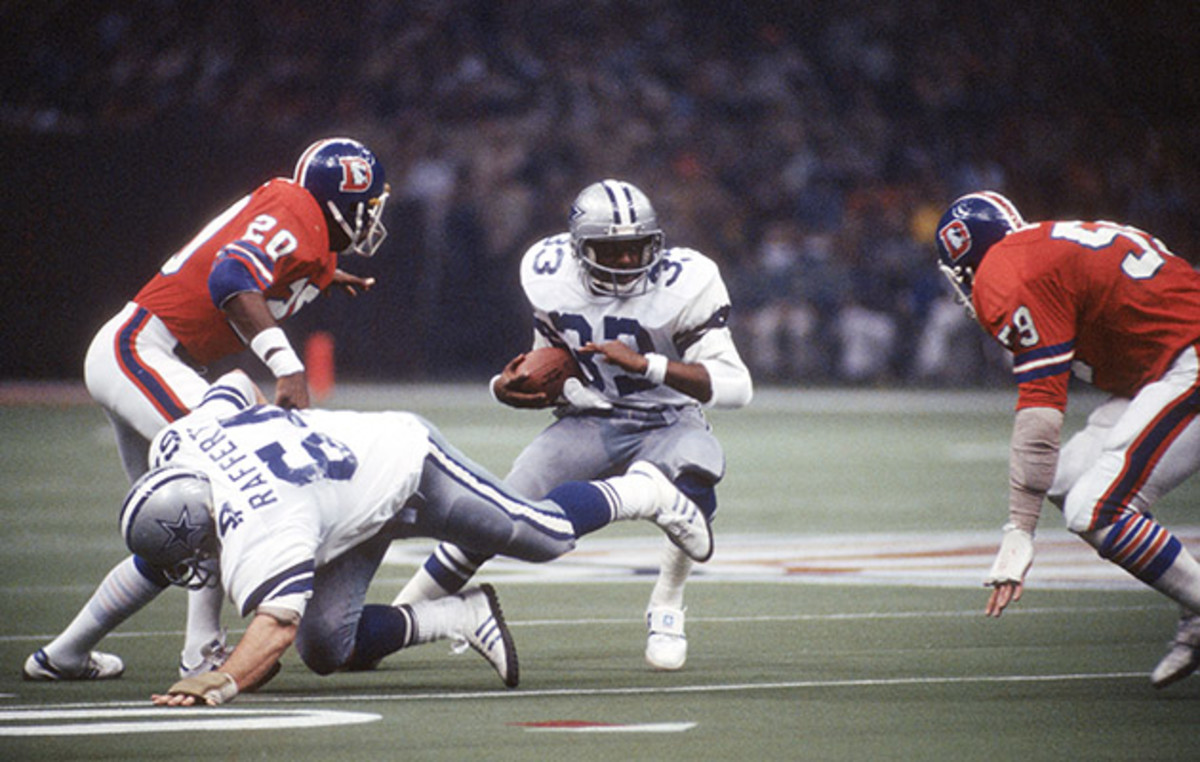
Dorsett won the Heisman as a member of the 1976 Pittsburgh Panthers, who won the national championship. Dorsett didn't stop collecting trophies when he entered the NFL: In the Cowboys' 27–10 victory over the Broncos in Super Bowl XII, Dorsett rushed for 66 yards and a touchdown on 15 carries.
George Rogers
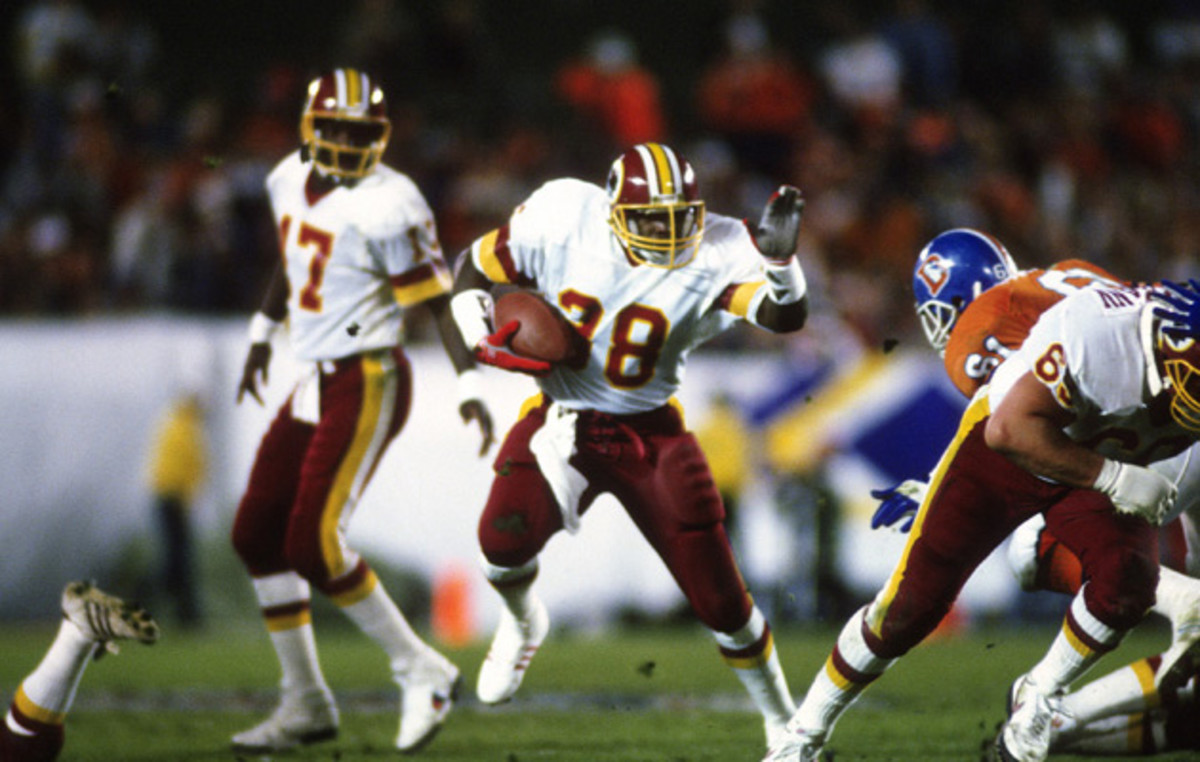
Rogers won the Heisman in 1980 as a running back at South Carolina. He won Super Bowl XXII with Washington, though he saw limited time in the game due to injury.
Marcus Allen
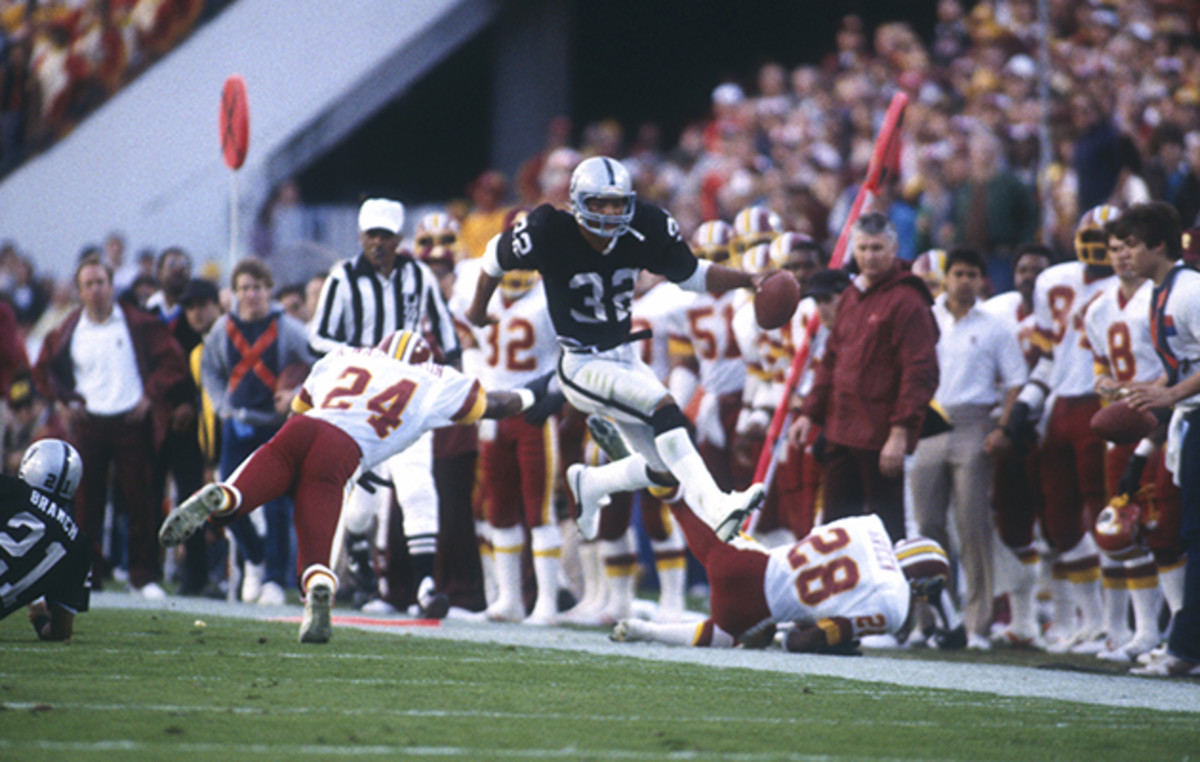
Allen earned the Heisman as a USC running back in 1981. The Pro Football Hall of Fame running back turned in one of the most memorable performances in Super Bowl history when he ran for 191 yards and two touchdowns on 20 attempts for the Raiders in 1984, helping Los Angeles rout Washington in Super Bowl XVIII, 38–9. His spectacular 74–yard touchdown run that night is widely considered one of the greatest plays in Super Bowl history.
Desmond Howard
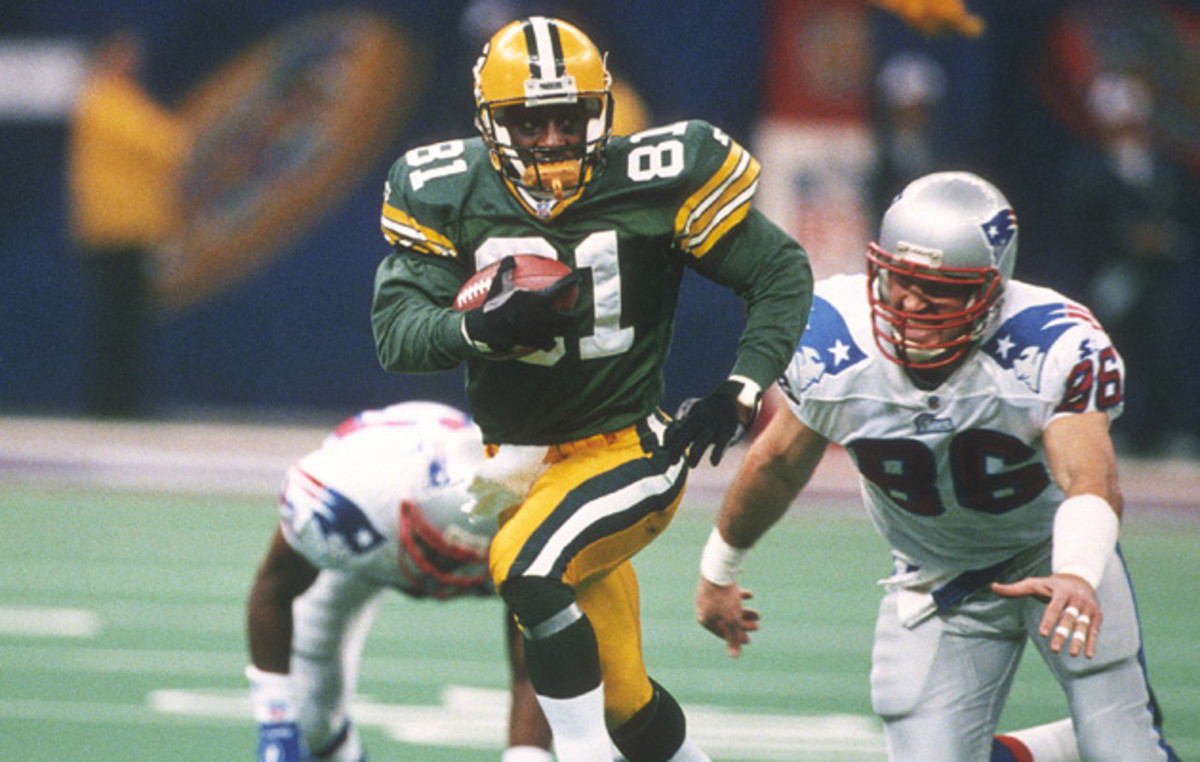
Howard's famous Heisman pose after returning a punt for a Michigan touchdown against Ohio State was validated when he won the 1991 Heisman Trophy. Howard never developed into a star NFL player, but he earned Super Bowl MVP honors after helping the Green Bay Packers defeat the New England Patriots in Super Bowl XXXI. Howard became the first special teams player to earn Super Bowl MVP after returning four kicks for 154 yards, including a 99–yard touchdown to put Green Bay up by two touchdowns in the third quarter.
Charles Woodson
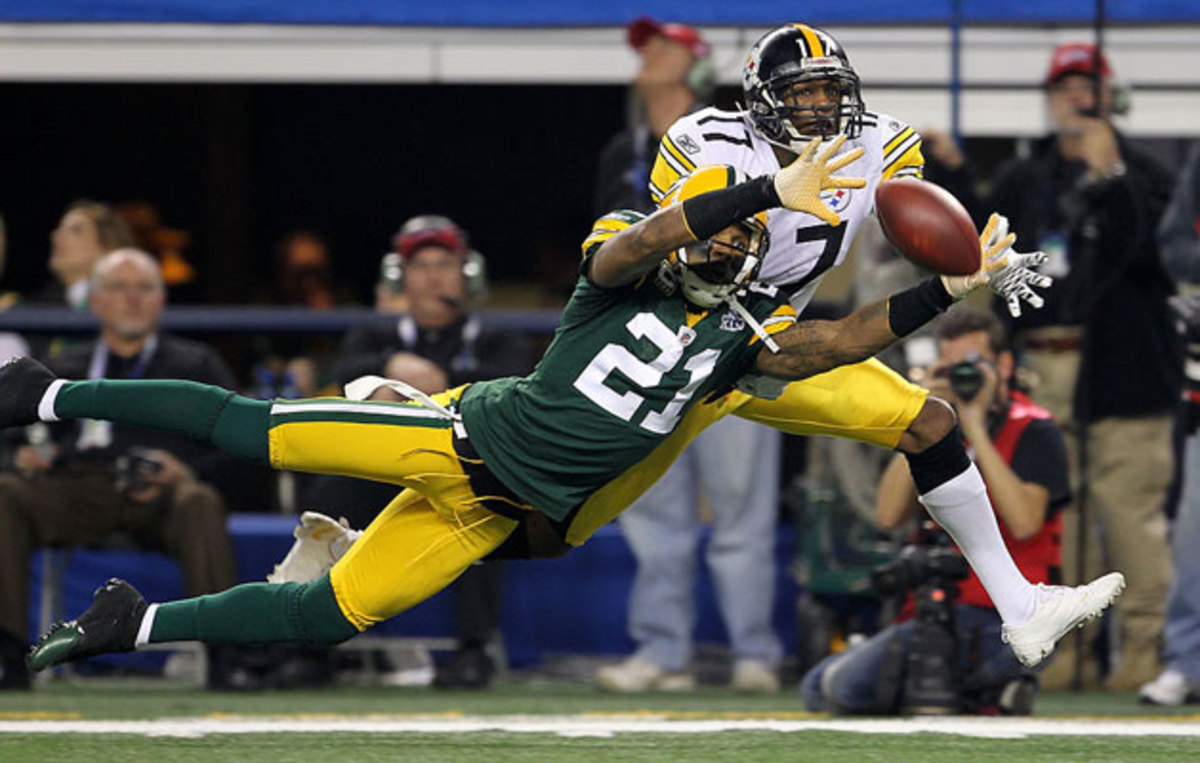
In 1997, Michigan cornerback Charles Woodson became the only player in history to win the Heisman Trophy as a primarily defensive player. He made Super Bowl XXXVII with the Raiders, but Oakland fell to the Tampa Bay Buccaneers. Woodson later joined the Packers and helped Green Bay win Super Bowl XLV over the Pittsburgh Steelers. Woodson, an integral part of the Packers defense, had to leave the game in the first half with a collarbone injury.
Reggie Bush
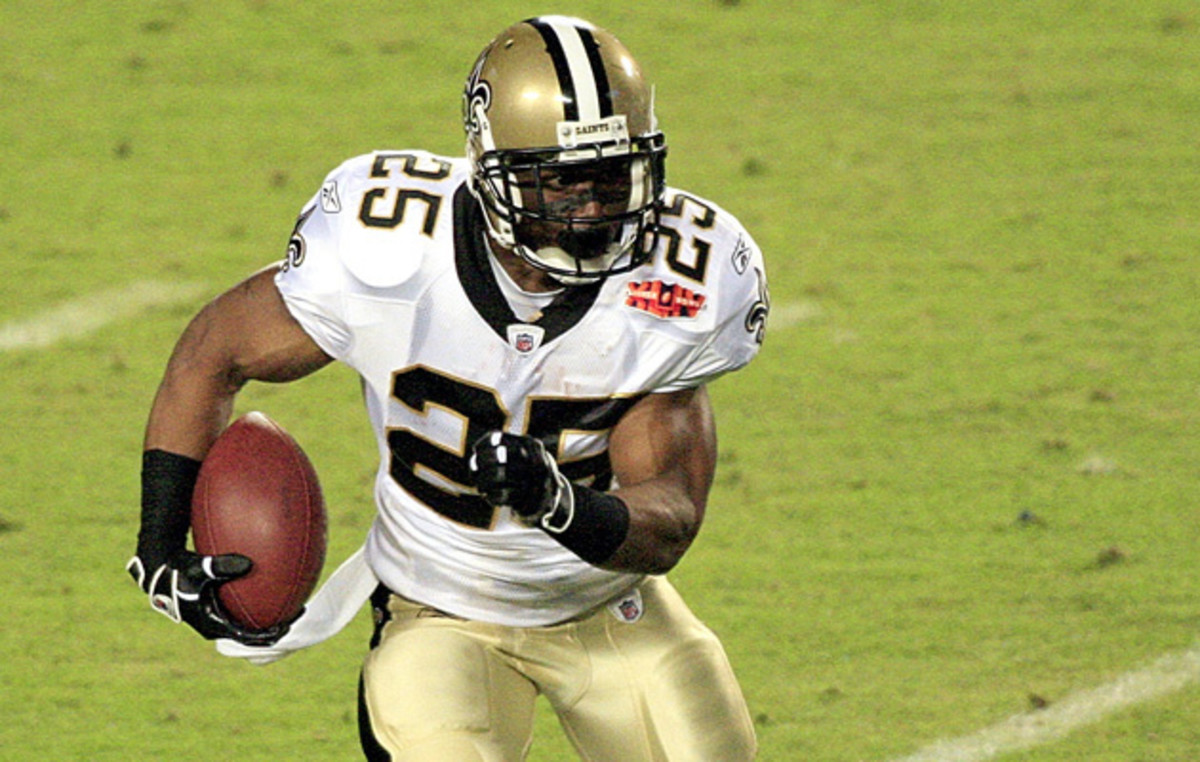
Bush won the Heisman Trophy in 2005 as a running back for USC, though he was officially stripped of the trophy after he was found to have violated NCAA rules while at USC by accepting improper benefits. Bush never turned into a superstar in the NFL, but he won Super Bowl XLIV with the Saints, rushing for 25 yards and five carries and catching four passes for 38 yards.
